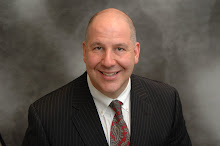On July 1, 2009, the Home Improvement Consumer Protection Act, 73 P.S. §§517.1, Et. Seq (“HICPA”) went into effect to curtail home improvement abuses.
As described below, HICPA requires contractors to resister with the Attorney General’s office, maintain at least $50,000 of property damage and personal injury insurance, prohibits “home improvement fraud”, defines what must be included - - and excluded - - from home improvement contracts, and imposes severe criminal and civil penalties.
“Contractor” Under HICPA
HICPA applies to contractors performing over $5,000 of annual “home improvements” including “construction, replacement, installation or improvement” of driveways, pools, central heating, air conditioning and solar energy systems, pool houses, garages, roofs, siding, insulation, security systems, flooring, patios, fences, gazebos, sheds, cabanas, painting, doors, windows, waterproofing, and storm windows or awnings.
Registration Requirements
HICPA requires contractors to register with the Attorney General every two (2) years and provide information including name, home address, telephone number, driver’s license numbers, social security numbers, prior “home improvement businesses” names, criminal convictions relating to a home improvement transaction, fraud, theft, deception or fraudulent business practices, judgments entered against applicant relating to home improvement transactions, bankruptcy filings, and any certificate or license revocation or suspension or disciplinary action from any another area in which applicant is registered.
Duty to Maintain $50,000 Property Damage and Personal Injury Insurance
HICPA also requires that all contractors obtain and provide proof of liability insurance covering personal injury and property damage of at least $50,000.
Home Improvement Contracts Terms Required/Barred By HICPA
HICPA requires that every home improvement contract:
- contain work’s approximate starting and completion date.
- describe work to be performed, materials to be used and specifications, which cannot be changed without a written change order signed by owner and contractor.
- include all subcontractors’ names, addresses and telephone numbers.
- verify that contractor agrees to maintain insurance and identifying amount of insurance maintained.
- include total sales price due.
HICPA also provides a list of prohibited contractual provisions which, if included, empowers consumer to void the contract.
Civil & Criminal Violations
HICPA prohibits “home improvement fraud” defined as “misrepresenting true name of salesperson, contractor or business, damaging property with intent of inducing consumer into purchasing home improvement services, misrepresenting cost of materials, altering any agreement or mortgage and publishing false advertisement”.
Under HICPA “home improvement fraud” can be criminally prosecuted as a 1st degree misdemeanor or 3rd degree felony (depending if contract is for more than $2,000) and increases offenses’ grading if victim is 60 years old or older. HICPA’s criminal penalties include revocation or suspension of contractor’s certificate.
Civilly, any HICPA violation forms a per se Unfair Trade Practices and Consumer Protection Law, 15 Pa. Cons. Stat Ann. §§ 201-1, et seq. (“Consumer Protection Law”) violation which allows for recovery of treble damages and attorneys’ fees. HICPA expands the Consumer Protection Laws scope by:
- requiring contractor to refund any amount paid within 10 days of “written refund request” receipt if 45 days have passed since work’s start time without performance of “substantial portion” of work.
- prohibiting contractor from materially deviating from plans or specifications without written change order containing deviation’s price change.
- barring contractor from accepting deposit exceeding of 1/3 of contract price (and cost of specially ordered materials) in contracts over $1,000.

